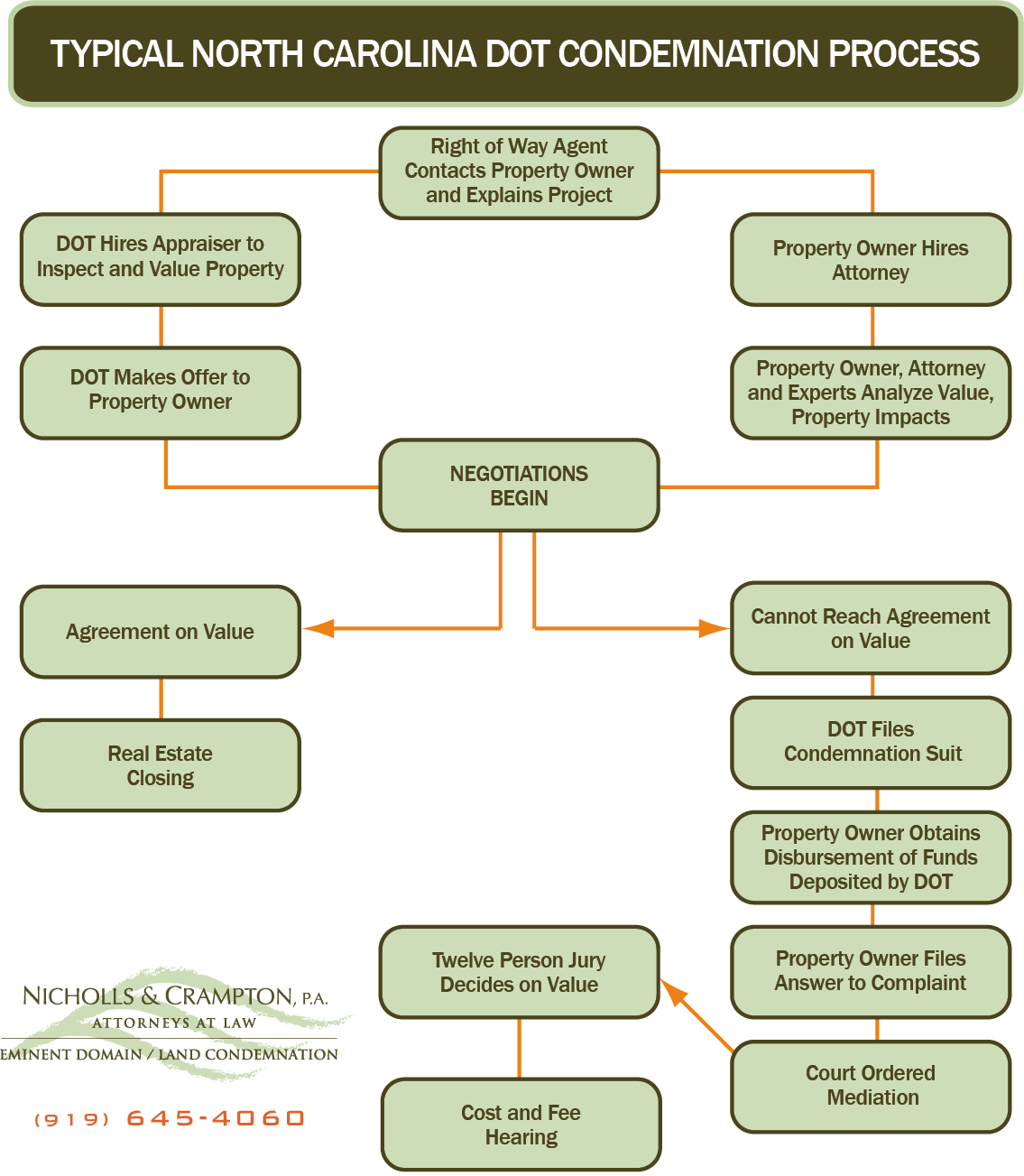Pre-condemnation planning
Highway and other public projects are often announced years in advance. It usually helps to get involved at an early stage. There may be steps you can take to protect your rights and ensure that you receive just compensation when your property is taken. The N&C Eminent Domain Practice can help analyze the project plans and work with you on pre-condemnation strategy.
Negotiations
In North Carolina, before the government condemns your property, you will likely be contacted by an agent of government who will make an offer to purchase the property they need. You can negotiate with the government agent to try to reach a deal for your land. If you are displaced by a public project, you may be entitled to receive relocation benefits such as moving expenses.
The N&C Eminent Domain Practice can take the lead in these negotiations, making sure your rights as a property owner are upheld and that you receive the compensation you deserve under the United States and North Carolina Constitutions.
Defending the lawsuit
If you cannot reach an agreement with the government to purchase your property, then the government can, in most cases, acquire your property by filing a condemnation lawsuit and depositing the money it thinks it owes you with the clerk of court. Once that happens, certain deadlines are set.
Your rights under eminent domain law allow you to withdraw the deposit without losing the right to fight for more money in the condemnation case. The N&C Eminent Domain Practice can help you understand the impact of filing a motion to withdraw the deposit, deadlines for filing an answer, hiring experts, developing your case strategy, negotiating your claim, and preserving your property rights.
Mediation
In North Carolina, both the property owner and the condemning authority are required to attend a mediated settlement conference before trial. At mediation, a neutral third-party mediator works with both sides to see if the case can be settled before trial. The mediator cannot force either party to settle the case, but he or she can help with negotiations. Even if the case does not settle at mediation, the parties can continue to negotiate before trial.
Jury trial
If the case does not settle, it will ultimately proceed to a jury trial in the county where the property is located. There may be hearings before trial in which a judge will determine all the issues in the case other than the issue of just compensation. At trial, twelve jurors will hear the evidence from both sides and determine the amount of money you are entitled to recover for the taking of your property.


